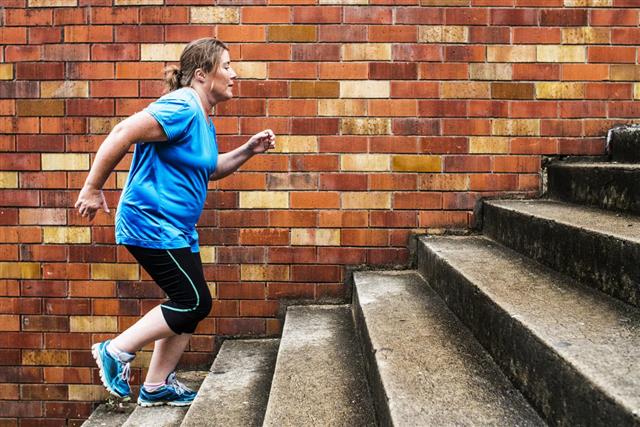
Are you experiencing pain, bloating and discomfort in the upper part of your abdomen? Read the following article to ascertain the possible reasons behind this.
Dos and Don’ts in case of bloating
- Take care not to swallow air while chewing food as it can lead to gas formation in the gut, resulting in bloating.
- Find out whether the medicines that you regularly take are aggravating your problem.
- Watch what you eat, especially foods that are gas-forming like potatoes, broccoli, beans, etc.
- Say no to straw. Using a straw while drinking can result in swallowing of air which can in turn result in excessive gas.
- Even though it’s embarrassing, the best solution is to let it out at the first chance you get, instead of holding it in and feeling pain, discomfort and other problems.
Upper abdominal bloating is experienced as pain, tightness, discomfort and a feeling of fullness in the stomach. In most cases, it is due to the presence of trapped gas in the intestines and the stomach. The most common culprits behind bloating are explained below:
Food Allergy
It could be due to consumption of such foods by the individual, which he or she is allergic to. For example, many people suffer from food allergies like lactose intolerance. So when they consume milk or other milk based products such as yogurt and cheese, they experience bloating, nausea, belching, gas, abdominal cramping and diarrhea.
Aerophagia
Upper abdominal discomfort could be due to swallowing of air, known as Aerophagia. Swallowing of air can take place while the person is eating, talking, smoking, breathing through mouth (when there is accumulation of mucus in the nasal passages) or even when one has stress. Normally, air in the esophagus is passed out when a person belches, however, if the air instead of going out, enters the gastrointestinal tract, it remains there till it is passed through the anus, causing bloating and gas.
Indigestion
It could be due to overeating or due to intake of certain foods which are very difficult to digest. Examples of such foods are – high fiber vegetables like cabbage, beans and sprouts, high sugar foods like sweets and soft drinks, starchy foods like potatoes, pasta and bread as well as alcoholic drinks, especially beer.
Pancreatitis
Upper abdominal bloating could be emanating from the structures found there. For instance, pancreas, which are found in the stomach, may get inflamed and result in a disease known as Pancreatitis. Increased intake of alcohol and gallstones, either of these can cause this condition, which almost always produces symptoms of bloating and severe pain in the abdomen.
Food Poisoning
Bloating and pain, experienced just after eating, if accompanied by vomiting, diarrhea, cramping, loss of appetite, tiredness and fever, could be due to food poisoning. Food poisoning is caused due to intake of foods which are contaminated with parasites, viruses, worms or bacteria.
Constipation
Another reason is constipation. In this condition, there is difficulty in elimination of the feces, sometimes even lesser than three times a week, which results in accumulation of wastes and toxins in the body. These wastes and body impurities cause gas and bloating. Other symptoms of constipation are hard and dark-colored stools, abdominal pain and difficulty while passing stools.
Irritable Bowel Syndrome
It could be due to a disease known as irritable bowel syndrome, in which the food passes either very quickly or very fast through the gut. Irritable bowel syndrome, besides bloating, produces symptoms such as constipation, diarrhea, flatulence and stomach cramps. Irritable bowel syndrome gets aggravated by stress, intake of alcohol, caffeine and certain drugs.
Splenic-flexure Syndrome
This chronic disorder is often accompanied by irritable bowel syndrome. In this condition, gas gets trapped in the colon, resulting in symptoms such as, muscle spasms, bloating, pain and discomfort in the affected area.
Functional Dyspepsia
Upper abdominal bloating can be caused by functional dyspepsia or indigestion, caused due to a number of factors, diseases and conditions, such as improper functioning of the muscles and nerves of the gastrointestinal tract, bacterial overgrowth of the small intestine, menstruation in women, inflammation of the colon or Colitis, and intake of certain drugs such as NSAIDs i.e. non steroidal anti-inflammatory drugs. Due to functional dyspepsia, a person experiences discomfort, pain and bloating in the upper abdominal area.
Celiac Disease
Due to this disease, the lining of the small intestine gets destroyed and thus, the body is unable to digest gluten. This disease makes a person malnourished and can produce symptoms such as abdominal pain, bloating, constipation, vomiting, weight loss, indigestion, smelly stools, amongst many others, in a person.
Motility Disorders
Motility disorders cause unusual movements in the muscles of the intestine. A person suffering from such a disorder may experience bloating in his stomach, including in the upper abdomen.
Helicobacter Pylori
Helicobacter Pylori is a bacterium which causes many of the ulcers. This bacteria in the stomach destroys the stomach lining, allowing the digestive juices to enter the abdomen layer and irritate it further. This bacterium produces a number of symptoms in the stomach, which include abdominal bloating, nausea, burping, weight loss and gas.
Upper abdominal bloating can be treated by taking medications which reduce gas, such as, antacids. Medicines are not the only cure though, changes in diet and lifestyle have to be incorporated as well. Avoiding a tendency to overeat, eliminating fatty and sugary foods from the diet, eating slowly and chewing properly, exercising everyday and reducing stress by way of meditation – these are some of the effective home remedies to get rid of gas and upper abdominal bloating.





